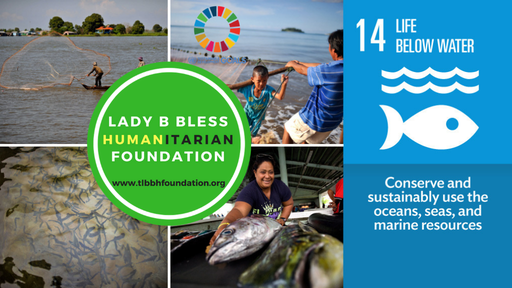
More than 3 billion people rely on the oceans for their livelihoods, and more than 80 per cent of world merchandise trade by volume is carried by sea. The oceans, seas and marine resources are under constant threat from pollution, warming and acidification that are disrupting marine ecosystems and the communities they support. These changes have long-term repercussions that require the world to urgently scale up the protection of marine environments, investment in ocean science, support for small-scale fishery communities, and the sustainable management of the oceans.
While efforts to reduce nutrient inputs into coastal zones are showing success in some regions, algal blooms indicate that coastal eutrophication continues to be a challenge. Globally, anomalies of chlorophyll-a (the pigment responsible for photosynthesis in all plants and algae) in national exclusive economic zones decreased by 20 per cent from 2018 to 2020.
Ocean acidification is caused by the absorption of atmospheric carbon dioxide by the ocean, resulting in a decreasing pH and threatening marine organisms and ocean-based services. A limited set of long-term observation sites in the open ocean have observed a continuous decline in pH over the past 20 to 30 years.
Mean protected area coverage of marine key biodiversity areas increased globally from 28 per cent in 2000 to 44 per cent in 2020. However, there is considerable geographical variation in this progress, with coverage still less than one-quarter of key biodiversity areas in Oceania (excluding Australia and New Zealand).
Improved regulation, together with effective monitoring and surveillance, has proved successful in restoring overfished stocks to biologically sustainable levels. However, the adoption of such measures has generally been slow, in many developing countries in particular. In 13 countries and territories that have active assessment and management systems in place, the proportion of fish stocks within biologically sustainable levels is higher than the world average of 65.8 per cent, according to data collected in 2019.
Between 2018 and 2020, the average degree of implementation of international instruments to combat illegal, unreported and unregulated fishing improved around the world, with the global score measuring the implementation of the five principal instruments rising from 3 to 4 out of 5. Almost 75 per cent of States scored highly in their degree of implementation in 2020, compared to 70 per cent percent of States in 2018.
Between 2018 and 2020, the world made progress in implementing regulatory and institutional frameworks that recognize and protect access rights for small-scale fisheries, with the global score rising from 3 to 4. At the regional level, Northern Africa and Western Asia made this progress, while the regional score for Central and Southern Asia fell from 3 to 2, highlighting the need for efforts there to be redoubled and demonstrating that there is no room for complacency.
Sustainable fisheries accounted for approximately 0.1 per cent of global GDP in 2017, while contributing more than 0.5 per cent of GDP in certain regions and the least developed countries. The sustainable management of fish stocks remains critical to ensuring that fisheries continue to generate economic growth and support equitable development. The long-term impact of the COVID-19 pandemic on fisheries poses significant challenges that threaten to undermine sustainable stock management and profitability.
On average, only 1.2 per cent of national research budgets was allocated to ocean science between 2013 and 2017, with amounts ranging from 0.02 per cent to 9.5 per cent. This is a small proportion in view of the conservatively estimated $1.5 trillion contributions of the ocean to the global economy in 2010.
Many states have ratified or acceded to the United Nations Convention on the Law of the Sea (168 parties) and its implementing agreements (150 parties for the Agreement relating to the implementation of Part XI of the United Nations Convention on the Law of the Sea and 91 parties for the United Nations Fish Stocks Agreement). A number of states have implemented these instruments through legal, policy and institutional frameworks, but further progress is needed in some developing countries, in particular the least developed countries.

Source: Progress towards the Sustainable Development Goals – E/2021/58

No comments:
Post a Comment